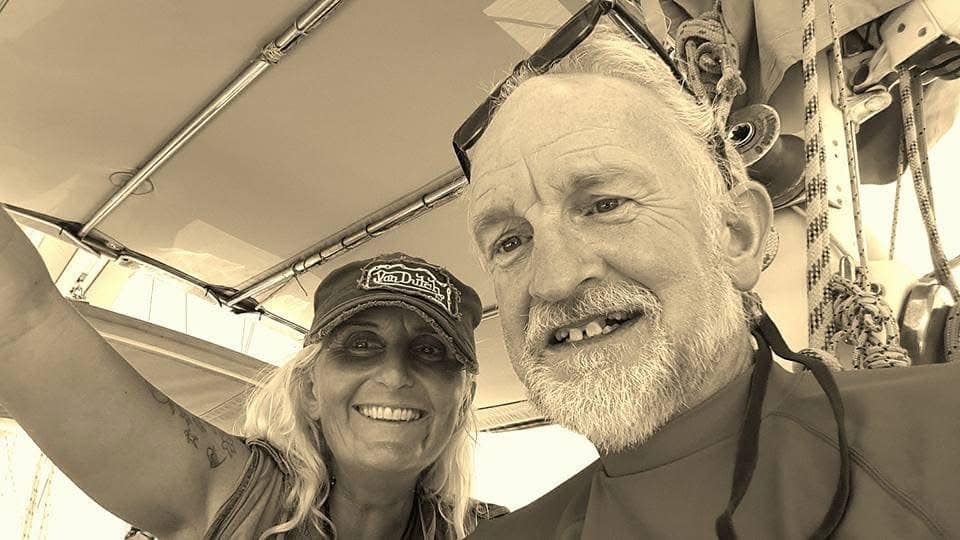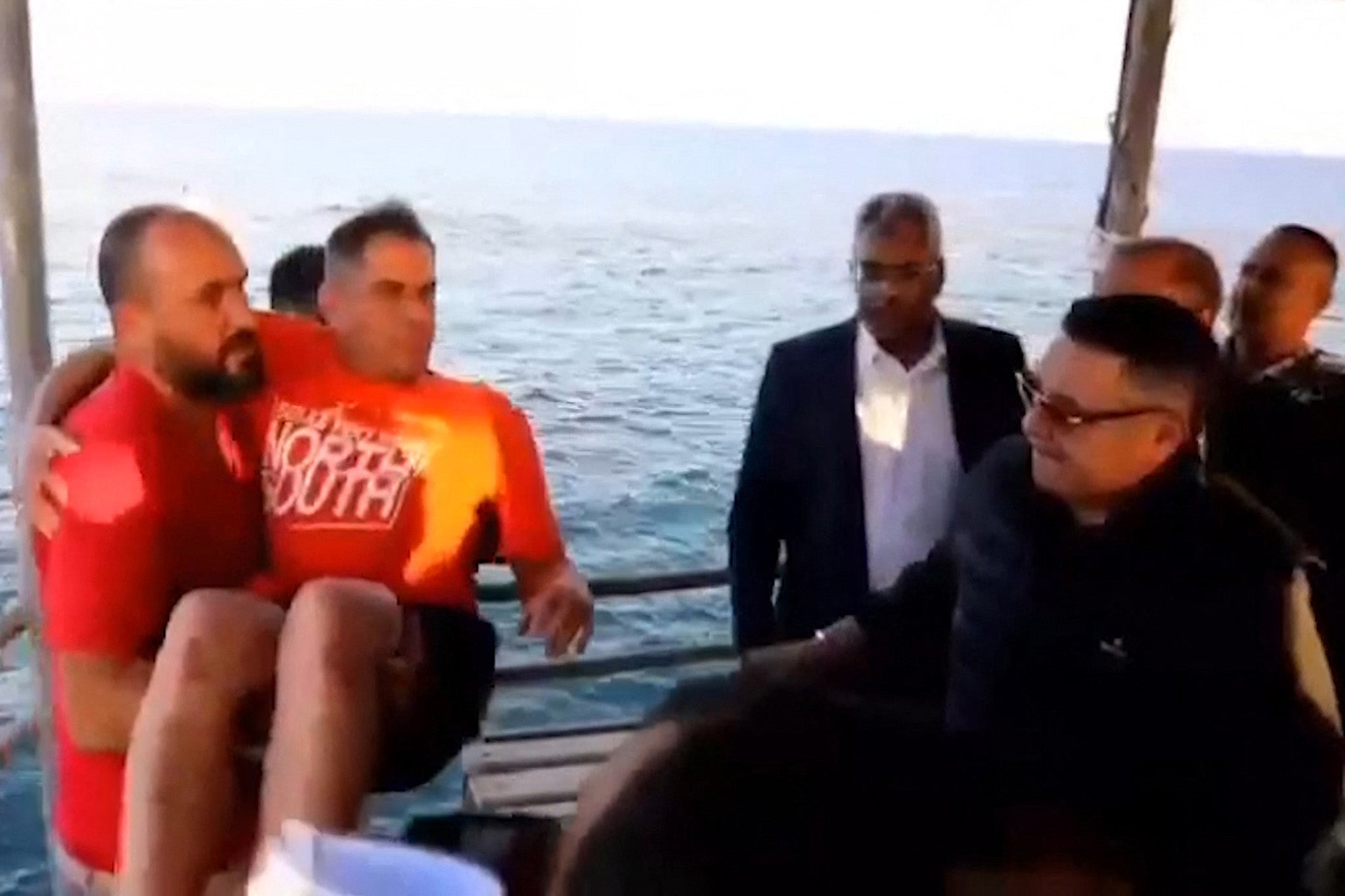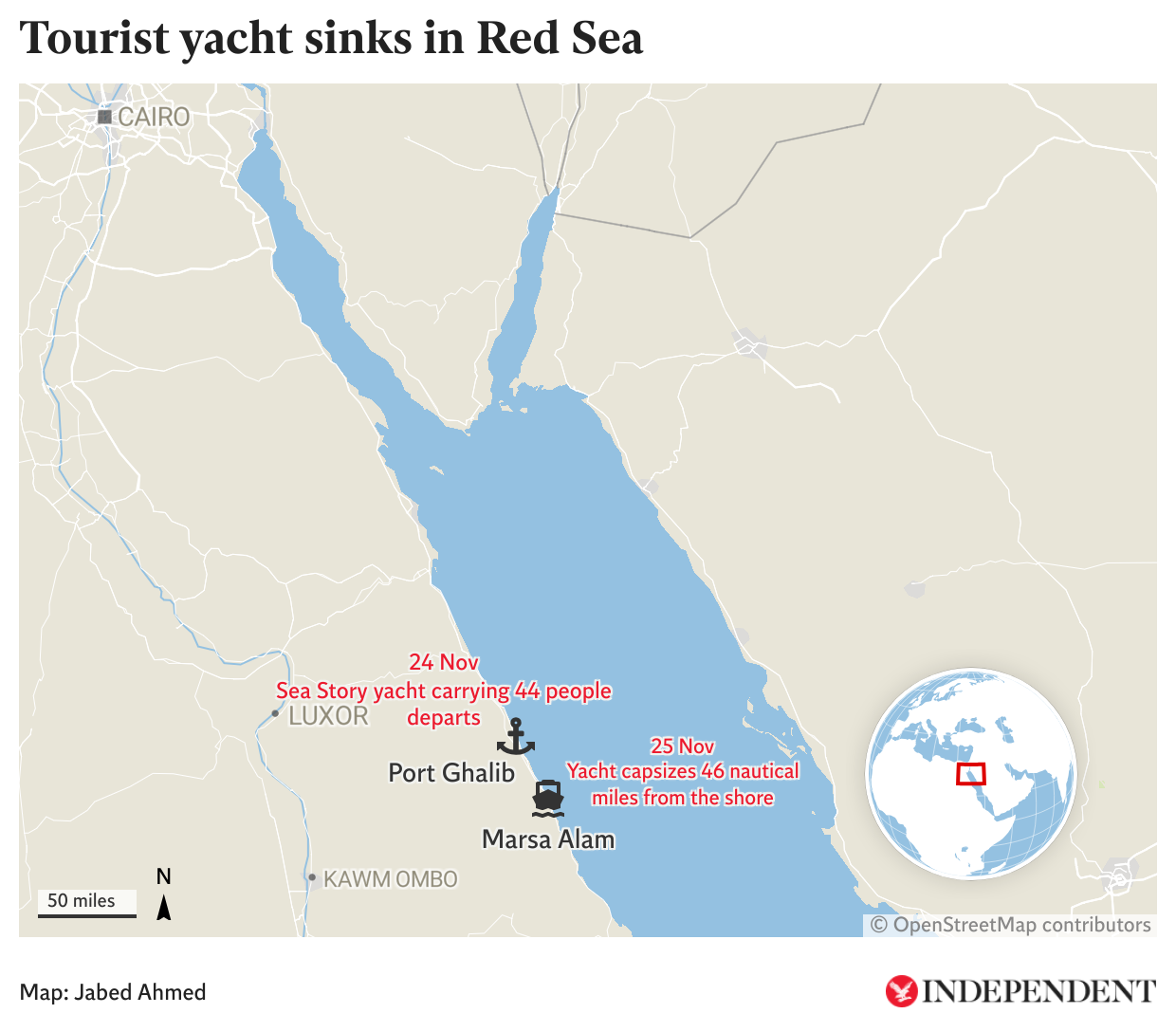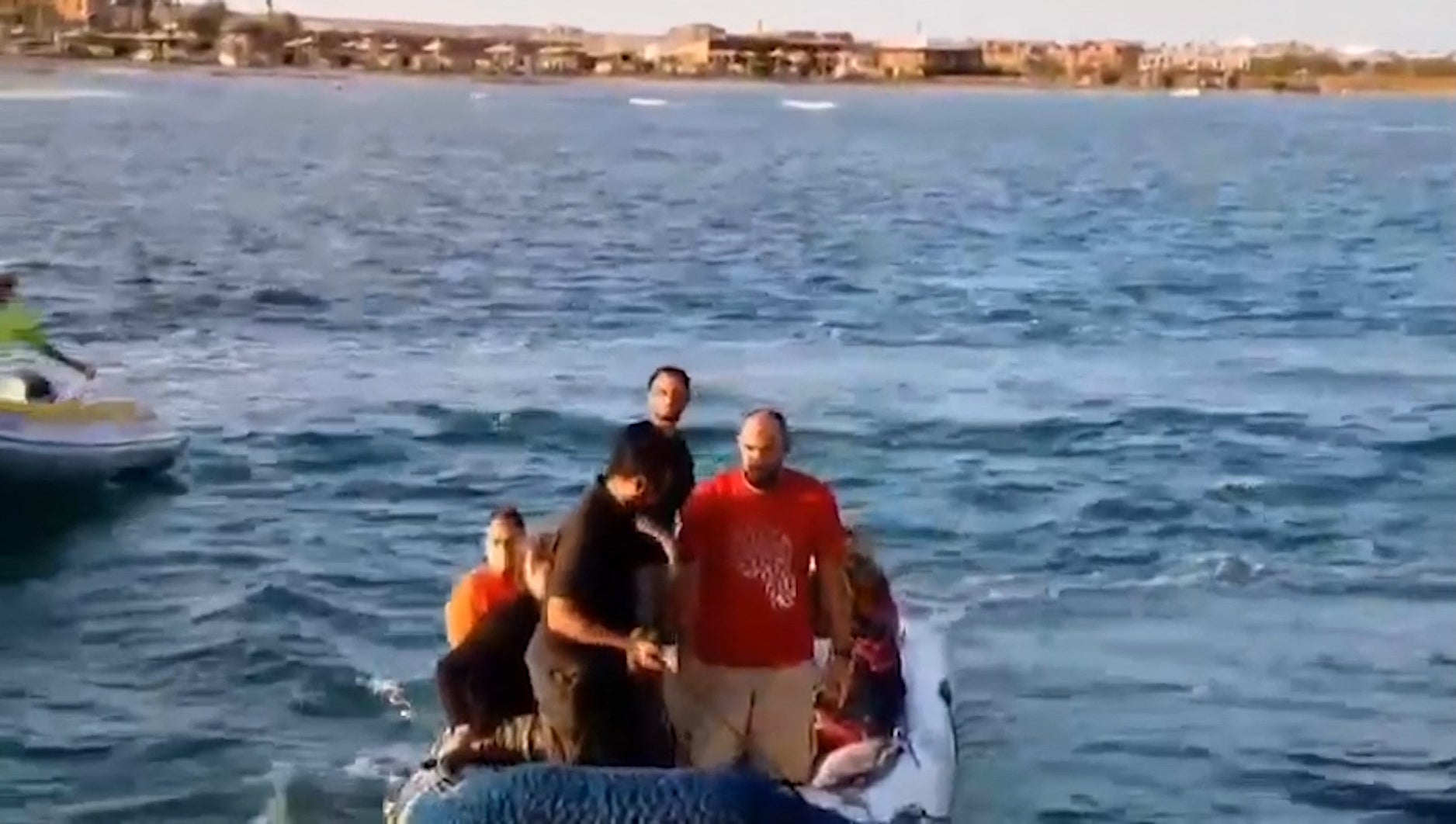They set off on Sunday morning, looking forward to a five-day diving trip in the Red Sea; a popular worldwide destination filled with beautiful coral reefs and plentiful marine life.
But for the 31 tourists on the luxury Sea Story yacht, the dream excursion turned into a nightmare when the vessel was reportedly struck by high waves on Monday, sinking in less than seven minutes.
In total, 44 people, including staff, were on the 44-metre boat when the distress signal was sent not far from the Egyptian town of Marsa Alam - of those, just 33 people have so far been rescued.
They include Britons Colin Sharratt and Sally Jones, keen sailors, according to The Times.
However, Egyptian authorities searching the sunken ship have also found four dead bodies. Seven people are still reported missing, including British couple Jenny Cawson, 36, and her husband Tariq Sinada, 49.
Ms Cawson’s family told the BBC on Saturday they are continuing to receive daily updates from the Foreign Office – but voiced their frustration as there is “still no news”.
For those rescued, their stories of survival are now emerging with some said to have spent 30 hours trapped in air pockets inside the yacht before being dramatically saved.

It’s a sickening end to a diving trip the tourists onboard, who came from many different countries including UK, United States, Germany and Ireland for the trip operated by Dive Pro Liveaboard.
Life on board the four-deck wooden boat was luxurious. The tourists enjoyed a plush lounge, complete with a bar and 18 air-conditioned en-suite rooms.
But the trip took a turn for the worse after the boat departed Marsa Alam on Sunday despite weather warnings from the Egyptian Meteorological Authority.

The authority warned of the possibility of large waves and advised boats against any maritime activity on Sunday and Monday.
On Monday morning, at 5.30am, the distress signal was sent. Red Sea governor Amr Hanafi said the sinking began after a huge wave crashed into the vessel, and the ship went down in between five and seven minutes.

Within moments, water was gushing through the structure and passengers were screaming from inside the cabins as the boat was toppled over, the father of a survivor told The Times.
One of the British survivors told investigators they “tried to swim up but the current was too strong and I felt like I was choking”. That tourist survived thanks to their life jacket, which kept them on the surface until rescue teams arrived, the outlet reported.

A major rescue operation ensued, led by Egyptian naval forces, the military and the Red Sea Governorate. On Monday, 28 people were rescued and brought to safety, images showing the moment the shocked group made it to safe ground.
The search paused overnight, before resuming on Tuesday morning. Little news has come from authorities since.
Khattab al-Faramawy, Youssef’s uncle, who was part of the rescue operation, told the BBC: “We dived 12m (40ft) underwater,” describing it as a complicated mission, as they used torchlight to find their way into the darkness.

Incredibly, they reached five survivors still trapped in the boat - including Youssef - who had survived for 30 hours underwater thanks to a 20cm-large air pocket that allowed them to breathe.
“It’s very nice to be back,” one Belgian tourist told officials, as he thanked the Egyptian military for their rescue efforts, and for the warm shower after an ordeal which left him “shaking with cold”.
On the same day, four bodies were recovered from the boat. They are yet to be officially identified.
Some doubts have been raised over the cause of the boat sinking, despite conflicting with witness reports.
Oceanographer Simon Boxall told Sky News that there was no evidence of a huge wave, arguing that the wind conditions “weren’t that strong” and “wouldn’t create these alleged three- to four-metre waves”.
He added: “I still feel that this is probably not a wave that caused the capsize. We need to see an investigation coming out of this. It’s still early days, but the information coming out from the Egyptian authorities is still very sparse.”







